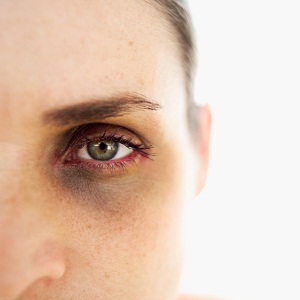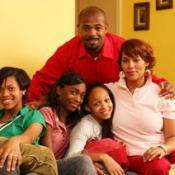 October is Domestic Violence Awareness Month, and many websites will be featuring information about how victims can escape violent relationships, as well as tips as to how friends and family can help. Many abuse victims are simply unwilling to leave their relationships. Thus, advising them to leave is not necessarily an adequate intervention strategy. And the unfortunate reality is that even if an abuse victim leaves an abusive relationship, the abuser is likely to behave similarly in his or her next relationship.
October is Domestic Violence Awareness Month, and many websites will be featuring information about how victims can escape violent relationships, as well as tips as to how friends and family can help. Many abuse victims are simply unwilling to leave their relationships. Thus, advising them to leave is not necessarily an adequate intervention strategy. And the unfortunate reality is that even if an abuse victim leaves an abusive relationship, the abuser is likely to behave similarly in his or her next relationship.
Many programs are attempting to curb the cycle of abuse by intervening with at-risk children before they become abusers, working with men who have a history of abuse, and helping couples establish safety plans.
Preventing abuse early
While most of society looks at domestic violence as a men’s scourge, women can and do abuse men. In fact, some statistics indicate that women are slightly more likely to engage in low-level violence, such as slapping their partner or breaking things. However, men are significantly more likely to engage in extremely violent abuse, are much more likely to abuse multiple partners, and tend to engage in post-breakup stalking behavior more frequently than women do.
Most research indicates that hostility toward women stems from men’s strong desire for respect, insufficient coping skills, and a belief in traditional gender roles. Early intervention programs target boys to teach them alternatives to abuse. And while these programs can’t stop abuse entirely, they’re highly effective. Some common skills taught in such programs include basic empathy, dispelling sexist beliefs, self soothing, anger management, and relationship problem solving.
Batterer intervention programs
Batterer intervention programs work with people who have an established history of abuse. Although generally targeted at men, some programs cater to women. Unlike traditional anger management programs, these programs specifically target abusive behavior. Where anger management programs might encourage a batterer to talk about his feelings, intervention programs encourage batterers go a step further, emphasizing the lasting effects their abuse has on victims.
Many of these programs require a commitment from batterers to abstain from drugs, alcohol, and other habits that may fuel anger. Group members typically hold one another accountable for their actions, and typically must pledge to avoid violent behavior while in the program. Programs generally last for extended periods. For example, in Atlanta, Men Stopping Violence runs a 22-week intervention program during which batterers learn how to manage conflict, are taught to understand the effects of their abuse, and make amends with their victims.
Individual therapy
Individual therapy can be effective with people who have a history of abuse, provided the batterer admits to the abuse and the therapist is experienced in handling such cases. Therapists may help clients use calming strategies, or employ cognitive behavioral approaches to gradually modify the batterer’s behavior.
Ineffective strategies
Every case is unique, of course, and strategies that work with one person may not work with another. However, the following strategies and programs are generally ineffective in treating domestic violence:
- Couples counseling: While relationship counseling may help after one partner has ceased abusing the other, as long as the abuse continues, couples counseling may in fact enable it. Abusers often blame victims for their abuse, and couples counseling often allows for a balanced exchange of thoughts and feelings. Couples interested in working on abusive behavior together should seek individual counseling first.
- Traditional anger management: Traditional anger management classes are typically only one or two sessions. Participants may learn deep-breathing exercises and better ways to express emotions. However, because of the systemic and deeply ingrained nature of abuse, traditional anger management alone is unlikely to lessen abusive behavior.
- Incarceration: While incarceration can keep victims safe and is an appropriate consequence for many abusers, it is unlikely to end the abuse long-term. In many cases, time spent in prison has been shown to make an abuser more inclined to abuse, not less.
References:
A policy statement on DV couples counseling. (n.d.). Faith Trust Institute. Retrieved from http://www.faithtrustinstitute.org/resources/articles/Policy-Statement-on-DV-Couples-Counseling.pdf
Men’s education. (n.d.). Men Stopping Violence. Retrieved from http://www.menstoppingviolence.org/programs/mens-education
Why do abusers batter? (n.d.). The Alabama Coalition Against Domestic Violence. Retrieved from http://www.acadv.org/abusers.html
© Copyright 2012 GoodTherapy.org. All rights reserved.
The preceding article was solely written by the author named above. Any views and opinions expressed are not necessarily shared by GoodTherapy.org. Questions or concerns about the preceding article can be directed to the author or posted as a comment below.

 When Is It Time to Separate the Family?
When Is It Time to Separate the Family? The Abused Husband: Dealing with Aggression in Relationships
The Abused Husband: Dealing with Aggression in Relationships Shedding Light on Partner Abuse
Shedding Light on Partner Abuse